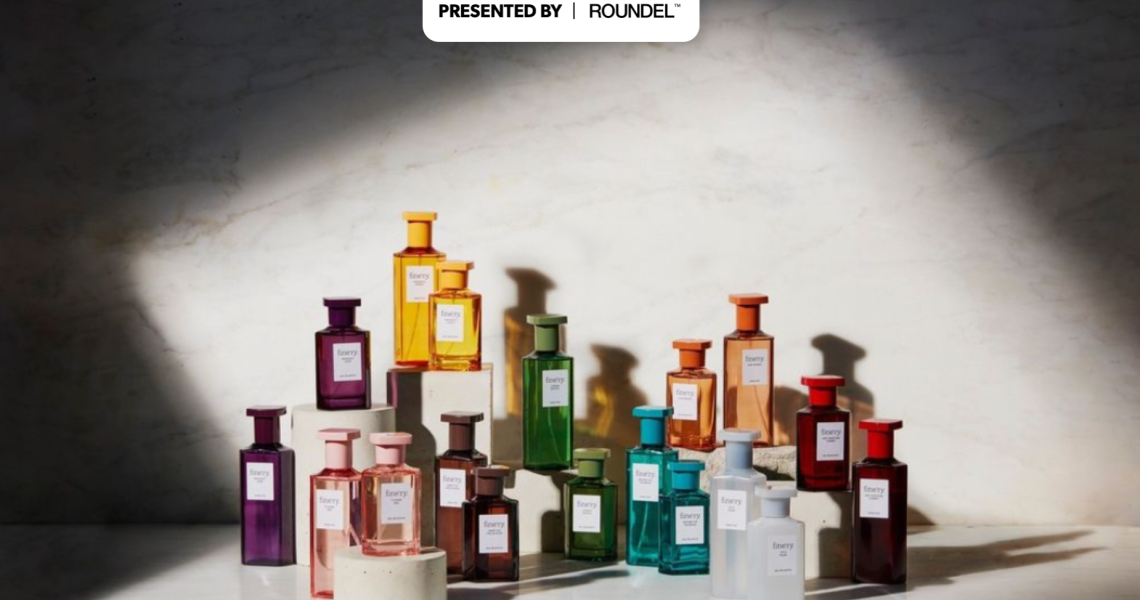This story is part of Glossy’s series breaking down the big conversations at Shoptalk.
The fragrance brand Fine’ry is saving “hundreds of thousands, if not millions” of dollars by exclusively using generative AI to create campaign videos.
“Nothing is real; it’s all done on a computer,” said Oshiya Savur, chief brand and marketing officer at beauty incubator Maesa, at Shoptalk, while showing Glossy a video that will soon roll out across Fine’ry’s marketing channels. Maesa, which is also behind Kristin Ess Hair and Flower Beauty by Drew Barrymore, among other bands, launched Fine’ry, the luxury-inspired fragrance brand sold at Target, in March 2023.
The video was a collaboration between Finery’s head of creative and the boutique creative agency NotContent.ai, which “lives and breathes” generative AI, according to Savur. Since Fine’ry began working with the agency in June 2023, the AI capabilities at its disposal have continued to increase. For example, it can now feature a rotating fragrance bottle in a video leveraging still images of the product.
“Generative AI is coming; there is no escaping it,” Savur said. “And so we’ve defined a use case and are using [the technology] to solve a problem: For Fine’ry, we want to produce prestige, very high-end imagery, but we don’t have a million of dollars to spend on it.”
According to previous Glossy reporting, 27-year-old Maesa’s revenue doubled from 2020 to 2023, growing approximately 25% in each of the three years. Private equity firm Bain Capital purchased a majority stake in the company in 2019. At the time, Maesa was earning $230 million annually and had 300 employees across seven global offices. According to Maesa, it’s the largest beauty incubator based on retail sales.
Based on the experience of creating AI-generated Fine’ry creatives exceeding expectations, Maesa is now launching a training program for its in-house creative teams across brands. Along with getting trained on AI applications, they’ll gain access to licenses for available digital tools.
“This is a strategic priority,” Savur said, “I want my creative studio to be able to churn out more content. There’s an unimaginable amount of content that brands need [to generate] just to keep up, and it’s impossible to get it all done.”
She added, “At Mesa, innovation runs in our DNA, but what we’ve been known for in the industry is product innovation. … My job is to bring that conversation to the world of marketing by scaling fast adoption of technologies, talent and content creators, and taking our very hot young brands and making them viral sensations.”
For Fine’ry, the new campaign video will be shared in paid media and social content and on the brand’s product pages. In addition, it will serve as the inspiration for a corresponding “consumer immersion moment” that will roll out in New York in April, Savur said — she compared it to the popular Van Gogh immersive exhibition. The experience will be based on what a Fine’ry scent feels like and will include an olfactory component. For those not in NYC, it will be brought to life through an AR filter on a yet-to-be-determined social platform.
Savur said that this type of campaign works in the fragrance category, which is emotive and has long relied on marketing based on “flights of imagination and fantasy.” However, because “hair ads need to show the product used and skin-care ads need to show the skin,” Maesa’s other brands will leverage AI for efficiencies around lower-stakes creatives rather than hero marketing campaigns, Savur said. For example, they’ll use it to develop e-commerce product imagery according to retail partners’ unique specifications.
In a survey conducted by Meta, all advertisers using generative AI said it saved them time on mundane tasks, Karin Tracy, head of retail, fashion and luxury at Meta, said during a press breakfast at Shoptalk. “It frees you up to do the creative work, the strategic work, the stuff that’s important to move your business forward — versus [focusing on], ‘How do I write 15 versions of copy to put on our ads?’”
According to Savur, “The natural evolution of a marketer is to become a tech expert. We don’t have to know how to do it, but we have to know enough to be dangerous so that we can guide what we want according to the business problems we’re solving.”
She added, “Digital transformation requires a change in mindset. And you realize that AI is under-hyped when you have a use case and find the right partner. There’s a lot that can be done.”




